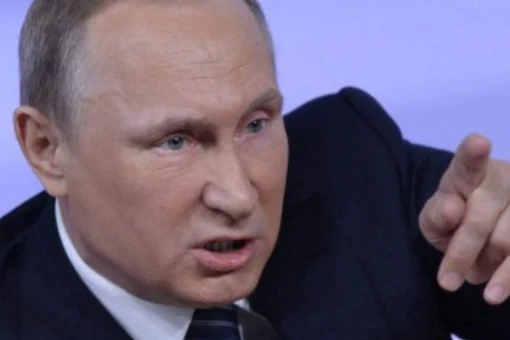It’s reasonable to say that three weeks into Russia’s invasion of Ukraine, things aren’t going well for Russia – and it has yet to reach objectives that were supposed to be completed in the first few days.
The longer Russia’s advance is slowed, the more likely it is to take severe measures, which may include the use of weapons of mass devastation.
This isn’t impossible, despite how unlikely it seems. What situations could lead to the use of weapons of mass destruction?
Chemical weapons
A chemical weapon is the most likely weapon of mass destruction to be utilised. Russia used to have the world’s largest chemical weapons stockpile, which included nerve agents like Sarin and VX, mustard gas, and the deadly gas phosgene.
Although Russia claims to have destroyed its chemical weapons inventory by 2017, the use of the nerve toxin Novichok in assassination attempts in 2018 and 2020 shows it still has them, but the quantities and types (other than Novichok) are unclear.
Despite the obvious logical discrepancy, US and ally officials believe Russia is planning (or considering) a “false flag” operation involving the use of chemical weapons to construct a belated pretext for the invasion of Ukraine.
Latest Defence Intelligence update on the situation in Ukraine – 14 March 2022
Find out more about the UK government's response: https://t.co/wg3FhtrkiY
🇺🇦 #StandWithUkraine 🇺🇦 pic.twitter.com/cJikRzwVpQ
— Ministry of Defence 🇬🇧 (@DefenceHQ) March 14, 2022
In this situation, Russia may use chemical weapons and blame Ukrainian forces, or it could use chemical weapons on a tiny fraction of its own forces to “justify” a retaliatory strike.
Alternatively, it could discover a stockpile of “Ukrainian” chemical weapons and use this as a post-hoc justification for the attack, similar to how the US exploited the claim of claimed WMD to justify the invasion of Iraq in the second Gulf War.
While this is merely supposition for the time being, it illustrates how the threat of chemical weapons hangs over the invasion of Ukraine.
If chemical weapons were employed, the consequences would be devastating — not only in terms of human lives lost, but also in terms of the places affected being uninhabitable.
Chemical weapons are still present in the environment in large quantities. A single touch on the skin, in the case of some (particularly nerve agents), is enough to bring death in seconds or minutes. It would be extremely difficult and risky to decontaminate the impacted areas.
We have yet to witness Russian forces wearing the protective gear required to function in a chemical-hazardous environment. This means that the use of chemical weapons is unlikely.




















